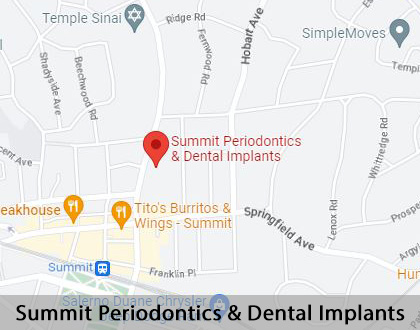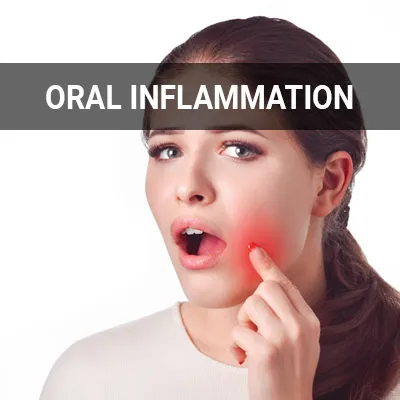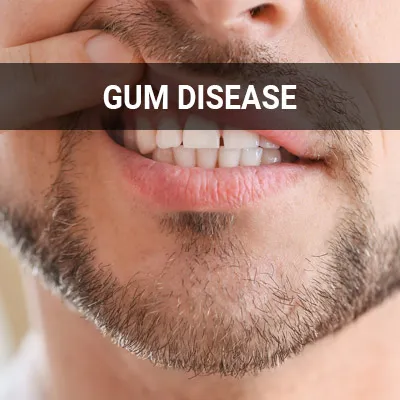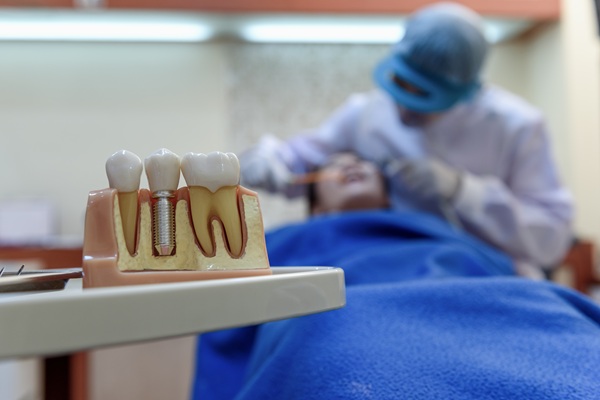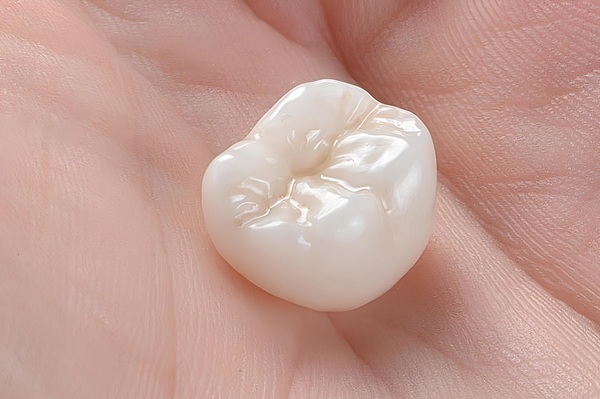Diseases Linked to Gum Health Summit, NJ
Diseases linked to gum health are far-reaching. Everything in the body is interconnected. Diseases like gum disease that start in the mouth can be linked to health problems in other parts of the body. At the same time, diseases in other parts of the body can affect what is going on in the mouth.
At Summit Periodontics & Dental Implants, we understand that keeping your gums healthy is about more than just your mouth. Our team realizes the connection between the health of your mouth and your overall health. If you are concerned, call our office at (908) 219-6664 to schedule an appointment.
The Oral-Systemic Link
The mouth is typically not the first thing people think of when they think of their physical health, but maybe it should be. The mouth is the gateway to the rest of the human body, and the health of the mouth often mirrors to an extent the health of the body. This relationship between the health of the mouth and the body's overall health is known as the oral-systemic link. According to the American Dental Association, "for the last several decades, a number of systemic diseases have been associated with oral health, particularly cardiovascular diseases and diabetes."
“The mouth is the gateway to the rest of the human body and the health of the mouth often mirrors to an extent the health of the body.”
Diseases Linked to Gum Health
When most people think of diseases linked to poor gum health, they usually think of periodontitis. However, the effects of poor gum health may reach much farther. Though the exact relationship is not clear, poor gum health appears to increase the risk of a wide range of other diseases. In addition to diabetes and cardiovascular disease, gum disease has also been linked to pregnancy and birth complications, osteoporosis, Alzheimer's disease, and certain cancers. This list is likely to continue to grow as research explores this subject further.
Oral bacteria traveling to other parts of the body and causing infection and inflammation is thought to be one mechanism by which gum disease causes disease in other parts of the body. Endocarditis, which infects the heart's inner lining, is one example of this. It typically occurs when bacteria from other parts of the body, such as the mouth, spread through the bloodstream to the heart. Bacteria can also travel from the mouth to the lungs causing pneumonia among other respiratory problems.
“Though the exact relationship is not clear, poor gum health appears to increase the risk of a wide range of other diseases.”
Diseases That Affect the Gums
Just as gum disease can impact other parts of the body, disease in other parts of the body can impact the gums. For example, the first signs of HIV (human immunodeficiency virus) can show up as a yeast infection in the mouth. Additionally, diabetes can cause periodontitis, the severest form of gum disease. High blood pressure raises one's risk of developing gum disease. In addition, those who are obese have an increased risk of developing periodontitis as well.
The message here is clear: Take care of your body, take care of your gums, and vice versa. Those severely overweight or with high blood pressure are advised to get those issues under control to reduce their risk of gum disease. Those with diabetes can lower their risk of periodontitis by keeping their blood sugar levels at healthy levels.
“The message here is clear: Take care of your body, take care of your gums, and vice versa.”
Check out what others are saying about our dental services on Yelp: Diseases Linked to Gum Health in Summit, NJ
Possible Complications of Unhealthy Gums
Gum disease is the most well-known result of unhealthy gums. The earliest stage of gum disease is gingivitis, characterized by red, swollen, and bleeding gums. Bad breath is another telltale sign of this early part of the disease. If gum disease progresses to periodontitis, painful abscesses may develop in the mouth. If periodontitis is left untreated, it can lead to permanent damage to the mouth, such as tooth loss and bone loss. Those with unhealthy gums also have a higher risk of tooth decay, leading to cavities or weakened teeth that can crack or wear down more easily.
While gum disease does not directly cause oral cancer, those with gum disease are at higher risk of developing oral cancer. Those who use tobacco products or drink heavily also have a higher risk of developing the disease. One should have regular oral cancer screenings, especially if one has any of these risk factors. The earlier oral cancer is diagnosed, the better the outcome of treatment.
“The earliest stage of gum disease is gingivitis, characterized by red, swollen, and bleeding gums.”
Questions Answered on This Page
Q. What is the oral-systemic link?
Q. What are some diseases of the body linked to gum health?
Q. Can diseases of the body affect the gums?
Q. What complications can arise from unhealthy gums?
Q. How can a periodontist reduce the impact of gum disease?
People Also Ask
Q. What are some treatment options for oral inflammation? What are some things I can do at home?
How a Periodontist Treats the Gums
A dental specialist who treats issues of the gums and bones of the mouth is called a periodontist. This specialist will not only advise patients on how to prevent gum disease from getting worse, but they will also help those with gum disease manage the symptoms. One is most likely to see a periodontist when gum disease becomes more advanced and needs more involved treatment. A periodontist employs several forms of treatment to strengthen and save the gums and reverse or reduce gum disease. These include but are not limited to:
- Gum Grafting: This is a type of surgery that reverses the effects of gum recession that can be caused by aging or gum disease. There are a few different types of gum grafts, and they can be done for cosmetic reasons or to protect an exposed tooth root. For example, the tissue is taken from elsewhere in the mouth, such as the roof of the mouth, and stitched into the existing gum tissue where it is needed to cover an exposed root.
- Periodontal Pocket Reduction: Periodontal disease destroys supporting bone and tissue, creating a pocket where bacteria can accumulate and thrive. During the pocket reduction surgery, the periodontist folds back the gum tissue to remove the bacteria and attaches the gum firmly back into place, so there is less room for bacteria to collect again.
- Ridge Augmentation: During this procedure, the periodontist will use bone and gum grafting to restore the natural curve of the gums and jaw after replacing a lost natural tooth with an artificial tooth.
- Scaling and Root Planing: This is the procedure for less severe cases of gum disease. The periodontist uses tools to remove plaque and tartar from under the gum line. If necessary, this procedure may be used with antibiotic medicines. For example, the periodontist may have the patient wear a tray system at home to deliver the medication. These trays are custom fit for the patient.
“A periodontist employs several forms of treatment to strengthen and save the gums and reverse or reduce gum disease.”
Frequently Asked Questions
Q. Does gum disease cause cancer?
A. Studies show those with periodontal disease tend to be at higher risk for other diseases, especially if they are older than 65. Cancer is included among these. These studies could someday lead to doctors including a look at your gums in assessing your overall cancer risk.
Q. What is the link between HIV and gum problems?
A. People with HIV have weakened immune systems that can aggravate oral health problems. However, many of these problems can be prevented or treated quickly. Also, conditions like HIV that suppress the immune system can lead to a yeast infection in the mouth called oral thrush. Thrush is often one of the first symptoms of HIV.
Q. How is gum disease linked to high blood pressure?
A. Inflammation due to gum disease is believed to worsen inflammation in other parts of the body. A recent study found that participants with gum disease were twice as likely to have a high blood pressure than those with healthy gums. Researchers believe reducing gum disease and the inflammation caused by it could be instrumental in reducing the inflammation that causes high blood pressure.
Q. Can dementia be linked to gum disease?
A. Bacteria that cause gum disease can travel from the mouth to the brain. Studies have suggested this may influence a cascade of events that lead to dementia. However, more research is needed to determine the exact relationship between gum disease and dementia.
Q. How can one prevent diseases of the mouth from affecting the rest of the body?
A. It is important to follow a strict oral hygiene routine. People should brush morning and night and after eating. Flossing daily is also important, along with the use of an ADA recommended mouthwash.
Start Feeling Better – Visit Us Today
By visiting us as soon as possible, our team can help get you the professional treatment you need. Instead of waiting around and allowing the symptoms to get worse, we can provide you with treatment options.
Definitions
Call Us Today
Our team at Summit Periodontics & Dental Implants understands that the health of your mouth and the health of your body are closely linked. We know that keeping your body healthy and keeping your mouth healthy go hand in hand. Call us today at (908) 219-6664 to learn more about our services or schedule an appointment.
Helpful Related Links
- American Academy of Periodontology (AAP). American Academy of Periodontology (AAP). 2023
- Center for Disease Control and Prevention (CDC), Periodontal Disease Page. Center for Disease Control and Prevention (CDC), Periodontal Disease Page. 2023
- WebMD, What Is a Periodontist?. WebMD, What Is a Periodontist?. 2023
About our business and website security
- Summit Periodontics & Dental Implants was established in 2015.
- We accept the following payment methods: American Express, Cash, Check, Discover, MasterCard, and Visa
- We serve patients from the following counties: Union County, Morris County and Essex County
- We serve patients from the following cities: Summit, Chatham, New Providence, Springfield Township, Maplewood, Berkeley Heights, Madison, Westfield, Millburn and Short Hills
- Norton Safe Web. View Details
- Trend Micro Site Safety Center. View Details
Back to top of Diseases Linked to Gum Health

